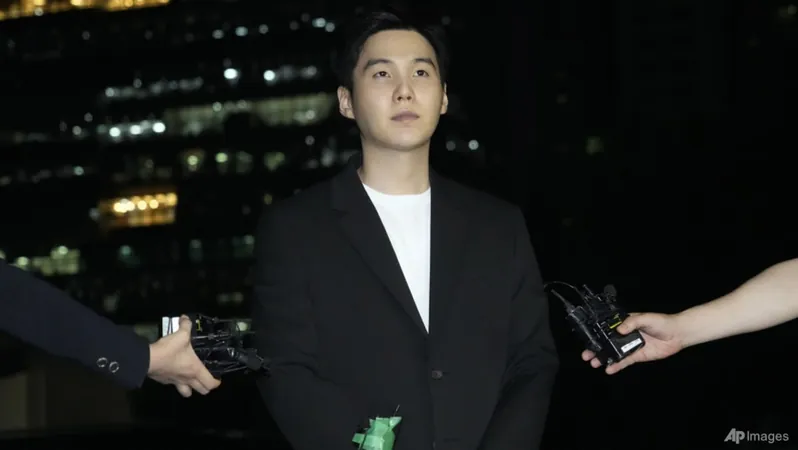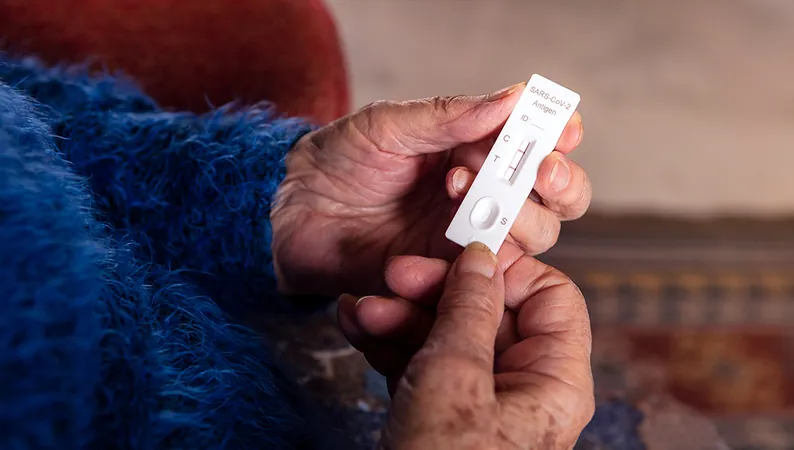
Is BTS' Suga's $11,000 Drunk Driving Fine Too Harsh? The K-Pop Controversy Uncovered!
2024-10-02
Author: Yu
In a surprising turn of events, K-pop superstar Suga from global sensation BTS has landed in hot water, facing a hefty fine of over $11,000 for driving an electric scooter while under the influence of alcohol. This incident, which occurred on August 6, saw Suga discovered lying beside his e-scooter with a blood alcohol level nearly three times the legal limit, a report from South Korea's Yonhap News Agency confirmed on September 30.
The 31-year-old musician is currently serving in the military as a social service agent and has already had his driver's license revoked due to this incident. While the offense didn't result in any harm to others, it has sparked fierce debate among fans and critics alike regarding the fairness of the punishment.
Contrasting reactions to Suga's mistakes draw attention to the inherent differences in how K-pop idols are perceived, especially in South Korea, compared to fans worldwide. Some argue that his misdemeanor pales in comparison to previous scandals that rocked the industry, such as the infamous Burning Sun scandal of 2019, where serious allegations involving prostitution and police corruption tarnished the reputations of several high-profile idols.
K-pop idols are often held to impossibly high standards, a fact that has induced polarizing reactions from their fanbase. In South Korea, many fans have expressed disappointment and outrage over Suga's actions, with calls for him to resign from BTS entirely. This reaction ties into the concept of "chemyeon", or social face, reflecting the societal pressure on individuals to maintain a flawless public persona.
Conversely, international fans have largely defended Suga, emphasizing that he is simply human and capable of making mistakes. This divide in perceptions highlights a broader discussion about cultural interpretation and expectations. While drunk driving is taken as a severe offense in South Korea—akin to premeditated murder—views abroad often differ significantly. For instance, when former NSYNC member Justin Timberlake faced drunk driving charges, he received minimal repercussions, leading to a stronger focus on rehabilitation than on moral condemnation.
Additionally, the well-being of K-pop idols raises critical concerns. The relentless pursuit of perfection often leads to immense pressure, contributing to severe mental health crises and tragic outcomes within the industry. Lee Sun-kyun, a prominent actor, tragically took his own life amid drug allegations last year, a reminder of the harsh realities faced by those in the spotlight.
Interestingly, the scrutiny surrounding Suga’s fine and subsequent reactions underscore the notion that public figures carry a weighty responsibility to adhere to their fans' expectations, particularly within the K-pop sphere. The backlash he faces is less about the specific act of drunk driving and more a reflection of the deep-seated cultural values and standards idolized in South Korean society.
As the discourse continues, it's evident that Suga's experience serves as a poignant reminder of the intricate ownership of public personas and the judgments cast upon them—showcasing that in the world of K-pop, the pedestal can sometimes feel more like a prison. What remains to be seen is how this event will shape Suga's future and that of other K-pop idols who dare to step outside the narrow confines of societal expectation.






 Brasil (PT)
Brasil (PT)
 Canada (EN)
Canada (EN)
 Chile (ES)
Chile (ES)
 España (ES)
España (ES)
 France (FR)
France (FR)
 Hong Kong (EN)
Hong Kong (EN)
 Italia (IT)
Italia (IT)
 日本 (JA)
日本 (JA)
 Magyarország (HU)
Magyarország (HU)
 Norge (NO)
Norge (NO)
 Polska (PL)
Polska (PL)
 Schweiz (DE)
Schweiz (DE)
 Singapore (EN)
Singapore (EN)
 Sverige (SV)
Sverige (SV)
 Suomi (FI)
Suomi (FI)
 Türkiye (TR)
Türkiye (TR)